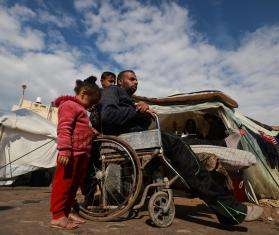Sixth Annual Listing Highlights Violence Against Civilians, the Ongoing Lack of Access to Medicines, and the Plight of Refugees
New York, January 6, 2004 -- An escalating refugee crisis along the border of Sudan and Chad as well as chronic conflicts in Colombia, Chechnya, Burundi, and Democratic Republic of Congo are among the Top 10 Most Underreported Humanitarian Stories of 2003, according to the yearly list released today by the international medical humanitarian organization Doctors Without Borders/Médecins Sans Frontières (MSF). The sixth annual list also highlights the lack of media attention paid to the high death toll from malaria this year, ongoing unremitting crises in North Korea and Somalia, a new war in Ivory Coast, and the threats posed by regional trade agreements on poor people's access to life-saving medicines.
"Few Americans are aware that right now hundreds of thousands of people are seeking refuge from intense violence in Sudan's Darfur region or that tens of thousands of people have been sent back to a war-zone in Chechnya," said Nicolas de Torrente, executive director of MSF-USA. "Yet people we speak to around the country tell us they want to know about these crises so they, too, can speak out and act against them."
Increasing brutality directed at civilians in 2003 also extended to aid workers. MSF volunteer, Arjan Erkel, for example, is still being held hostage more than 500 days after being kidnapped in the Russian Republic of Dagestan on August 12, 2002. Such insecurity contributes to preventing journalists from providing wider coverage of some of the world's most dangerous regions.
According to Andrew Tyndall, publisher of the online media-tracking journal The Tyndall Report, international coverage on the three major US television networks increased in 2003, but it was concentrated on Iraq. The 10 crises highlighted by MSF only accounted for 30.2 minutes, or 0.2%, of the 14,635 minutes on the networks' nightly newscasts, and 7 of the 10 crises received a combined total of 3.2 minutes.
While certain international issues did receive media coverage, the humanitarian dimensions were largely overlooked. Proposals by the US government in world trade negotiations, for example, were widely discussed without adequate analysis of the devastating impact they may have on poor people's access to essential medicines.
"North Korea was also in the media spotlight all year," De Torrente said. "But the nightmarish situation for people living there, as well as the persecution of North Korean refugees, was nearly invisible. And from our experience, silence and indifference are what allow such injustices to continue."



